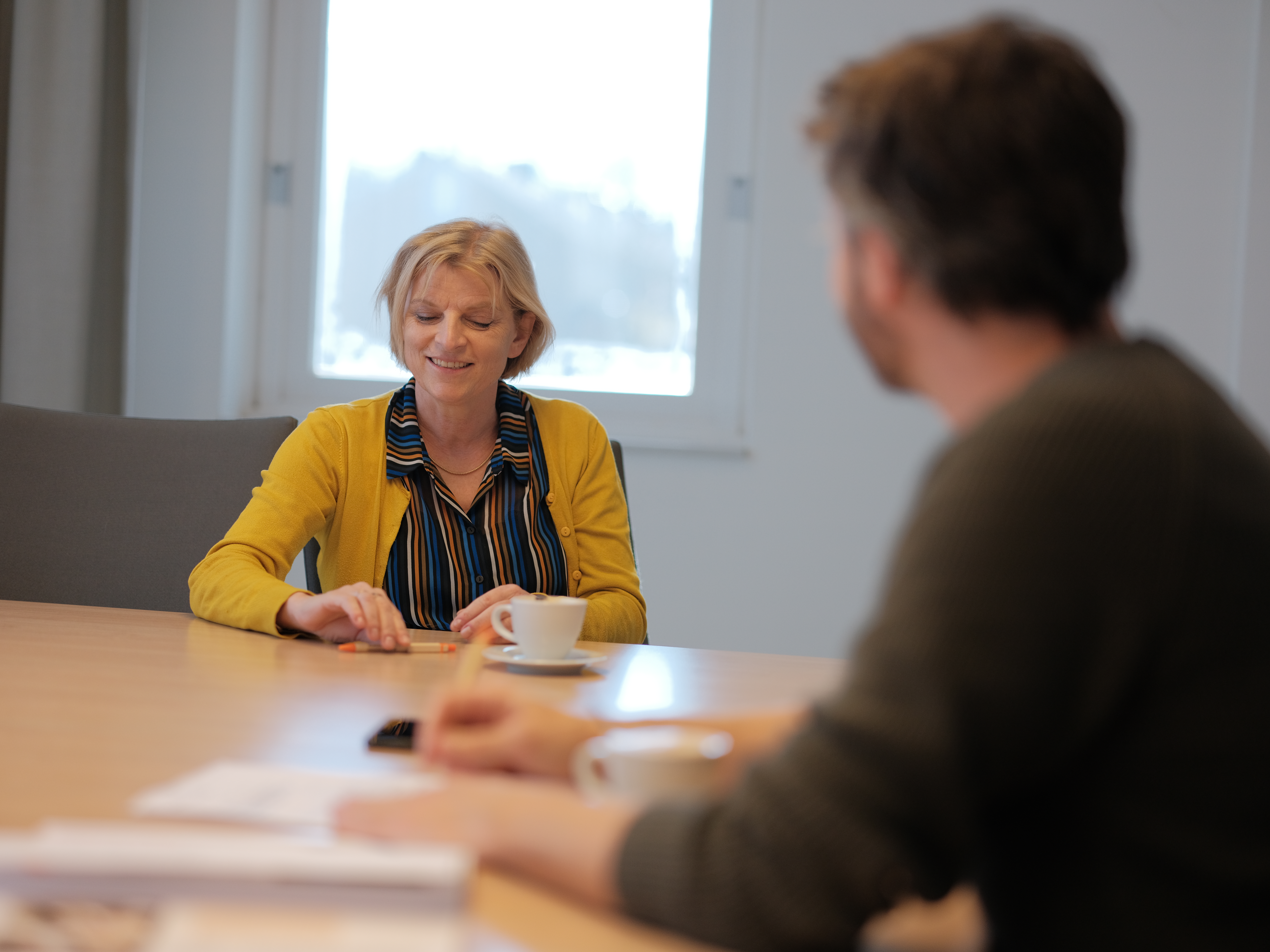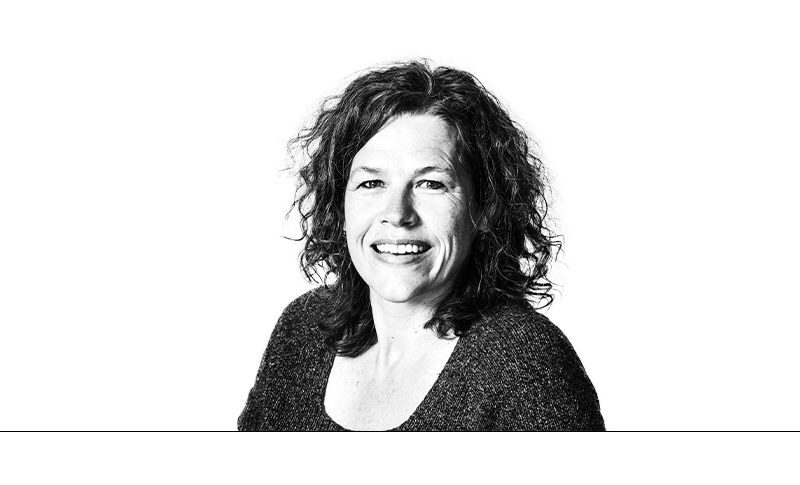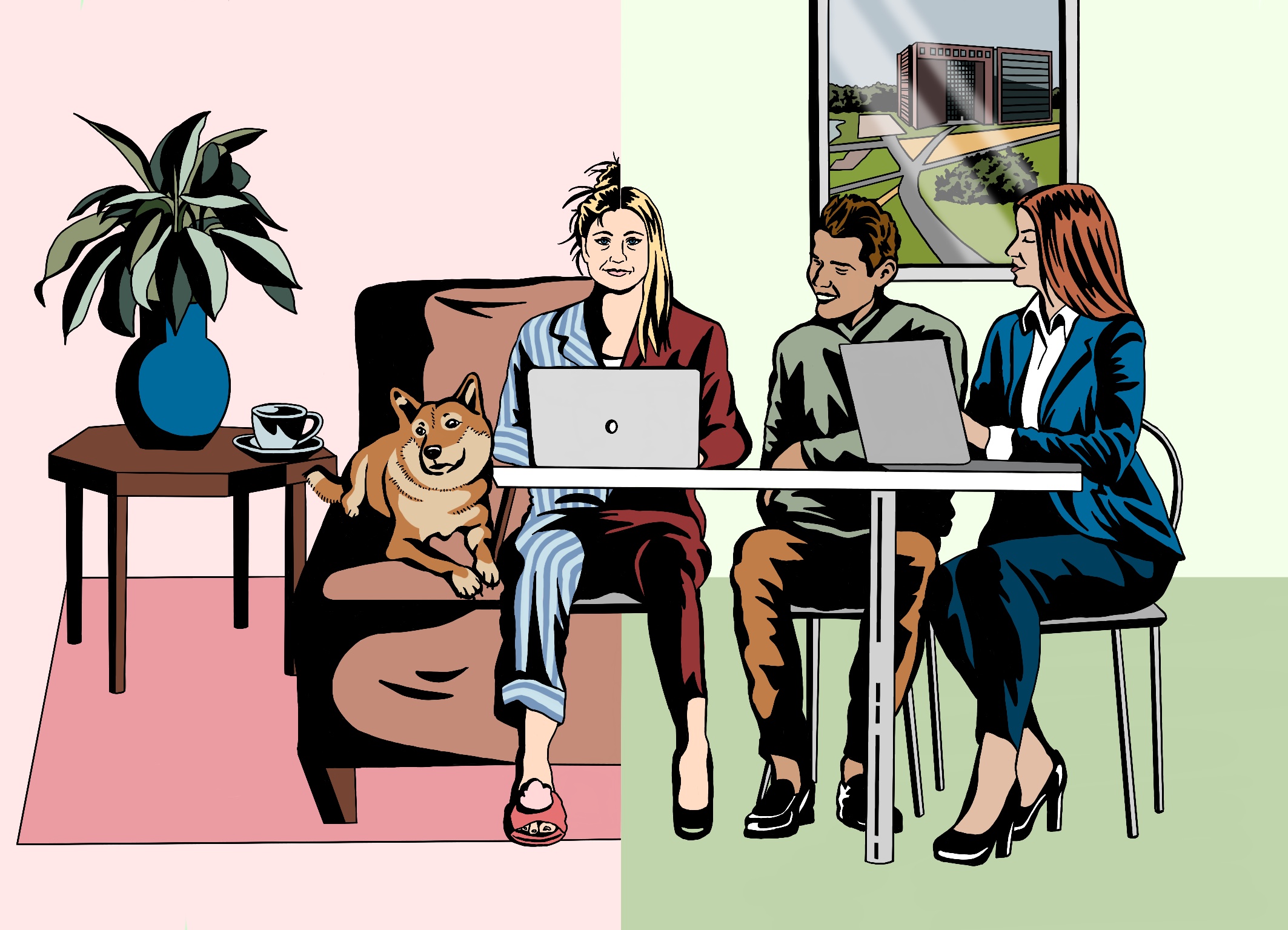We are all in a kind of living lab, looking for the best way to integrate home-working into our jobs. And it isn’t going well, if you ask Sjoukje Heimovaara. She wants to start a conversation about it.
Heimovaara is concerned. Her concern stems from discussions with the management teams of the sciences groups, from casual conversations and from her own observation. And Facilities and Services showed her some worrying figures about the number of departmental staff absent from the office on particular days. This bothered her and she started reading publications on the effect on teams of working in-person or digitally, on the effectiveness of teamwork, and on job satisfaction. ‘Hybrid working is changing all the time so I sometimes find older research tricky to interpret. But I do read and hear that there are demonstrable effects when employees are not together enough. Teamwork suffers and the sense of “togetherness” diminishes. Unstructured encounters are important for understanding each other, and proximity is necessary for creativity.’
Heimovaara draws from her own experience. She started at WUR in Covid times. ‘I hardly saw my colleagues in-person and contact felt awkward as a result. When we did meet face to face, I could at last say what I was struggling with or ask in passing where I could find a report. Then you get those brief moments of contact that generate mutual understanding about what you are doing; togetherness is the oil in the machine if you want good cooperation.’
Mentoring
Heimovaara also worries about the lack of mentorship and the integration of new colleagues into teams. ‘When you are new somewhere – especially in a complex organization like ours – and you don’t see much of your colleagues, you don’t feel part of a team. You don’t have a colleague you can quickly ask a question; you don’t get to know the workplace culture. Newcomers need mentors, for personal and professional growth’.
Working from home does have its advantages, Heimovaara acknowledges. It’s nice to read a report undisturbed, or to work on difficult material that calls for full concentration. ‘And some people enjoy the autonomy. I am sure there are experienced colleagues with pleasant home conditions who can work just as well from home. They tell you what they’ve been doing at the weekly team meeting, and work from home for the rest of the week.
Creativity requires closeness
But the danger is that you end up creating your own bubble, whereas what you really need is “unsought contacts”. Someone who offers unsolicited critical comments and stimulates self-reflection. At home, it is easier to overlook the fact that you are part of a team and that you are important to the group, including in the mentoring role. And that you can share information with colleagues that is crucial to our work. And a sense of belonging to a team is an important motive for setting to work every day. It helps you enjoy the job.’
Five days
‘I do realize of course that there are many places on campus and in the other locations where it really is too busy,’ Heimovaara continues, ‘especially in and around the labs. That’s not easy to solve and we are working on it. But there are also places where people – and I hear this from every science group – have very much retreated into their own bubble. And empty buildings can have a self-perpetuating effect. Suppose a colleague goes into the office in order to see some colleagues, but there’s no one there.
Have the guts to say: we are going to agree fixed days that everyone is there
They’ll stop coming in. WUR is what it is because of our commitment, creativity and teamwork. And those things are under pressure. I believe that can negatively affect the quality of the work we do.’
Heimovaara sees coming in to the office five days a week as an option, even though working at home reduces travel and WUR’s housing plan expressly encourages working from home. ‘Cutting travel for the sake of the climate really matters to me. If a lot of people have to travel long distances for a meeting, it should be held online or alternate between in-person and online. And please, let’s limit flying. That’s already a win. But it should not be at the expense of human contact, because then we lose something necessary and something beautiful.
To understand each other, unstructured encounters are important
And yes, it may even be better if people come every day. For instance, if your home situation demands it. Or because you have a central position in the team as a secretary or lab manager; then you should be able to come five days a week. It could also mean that someone who likes to work at home comes to work more often because it helps the team move forward. The basic idea is to work where you are most effective as an employee. We have to think how we are most effective as a team. That’s the appeal I want to make.’
Managers
Reinventing working, in other words. But how? ‘I know a lot of people are busy trying to figure out how to do it. It’s as if we live in a living lab, a kind of continuous experiment. I too don’t have the definitive answer. I do think managers have to take their role in this. They should have the guts to start the conversation and say: I see we have a problem, cohesion is disappearing, people are lost or isolated. Let’s start the conversation. And have the guts to say: we are going to agree fixed days that everyone is there. It requires employees to think in the team interest and managers to ensure that good agreements are made in the group interest. It requires commitment from everyone.’

 Foto: Duncan de Fey
Foto: Duncan de Fey 

